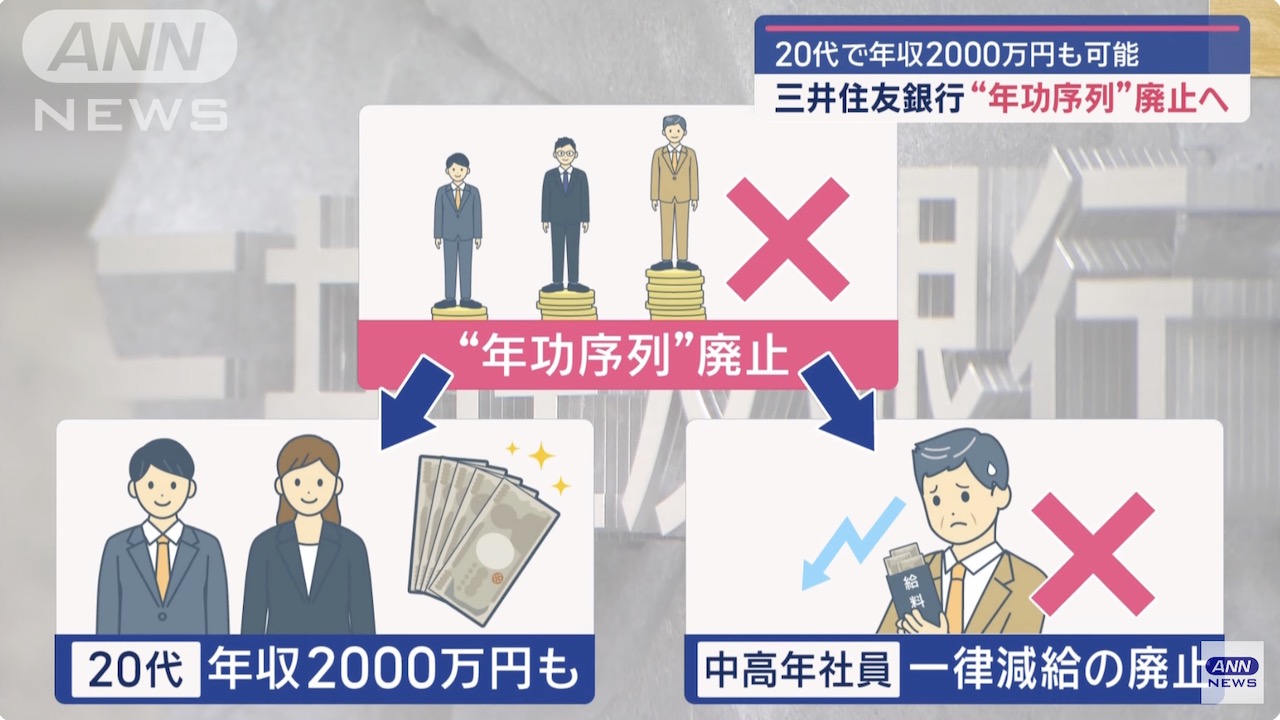TOKYO, Jun 22 (News On Japan) - The long-standing seniority-based system in Japanese companies is being phased out. Many have considered it natural to rise with age, but there have been times when people desired recognition based on ability. With this deeply ingrained system now under review, will the decision by a major bank change Japan's corporate culture?
It has been revealed that Sumitomo Mitsui Banking Corporation, one of Japan's three mega-banks, is planning a major overhaul of its personnel system. One of the significant changes is the abolition of the seniority-based system. Currently, salaries and positions increase with years of service. Sumitomo Mitsui, with approximately 30,000 employees, plans to abolish this system within two years. The bank aims to shift to a performance-based system.
The seniority system was introduced during Japan's post-war economic boom to ensure long-term employment. Mega-banks, which have historically hired large numbers of new graduates, have adhered strongly to this system. What is Sumitomo Mitsui's main goal? The bank wants to attract and retain talented individuals. Recognizing and rewarding young professionals for their contributions, regardless of age, is expected to strengthen their appeal to the younger generation. It will also ensure that even older employees who deliver results receive appropriate compensation. The key point is that under the new system, even a 20-something could earn an annual salary of 20 million yen based on performance.
This move also abolishes the automatic reduction of salaries for middle-aged and older employees. How do people on the streets perceive this change? Opinions are mixed. One man in his 40s welcomes the end of the seniority system, believing it to be beneficial for the younger generation. Another 40-something appreciates the predictability of the old system for financial planning. A pair of 20-somethings expressed divided opinions; one felt motivated by the change, while the other worried about the risk of salary decreases.
Business leaders also have varied views. One executive supports the idea, emphasizing the desire to reward high performers regardless of age. However, evaluating abilities remains challenging.
Experts believe that the abolition of the seniority system by a major bank signals a significant shift. They expect this change to influence smaller companies as well. Small and medium-sized enterprises (SMEs), which struggle to secure talent, are likely to follow suit in adjusting their wage structures. The collapse of the seniority system is expected to accelerate rapidly.
From the workers' perspective, it's challenging to determine which system is better. The current pressure on Japanese companies to attract top talent to remain competitive internationally highlights the urgency of such reforms.
Source: ANN
















